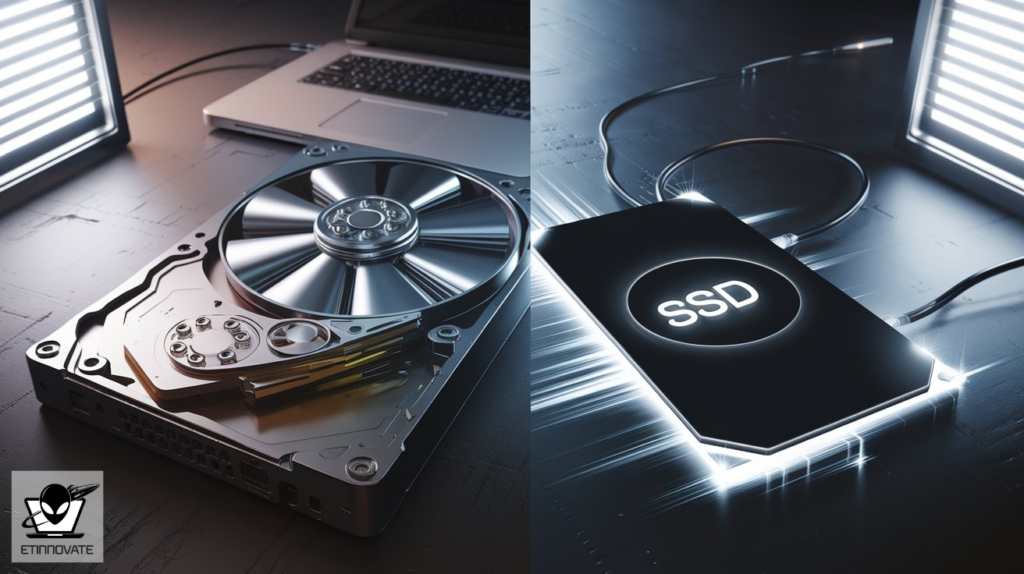SSD vs. HDD: Is Upgrading Really Worth It?
Why Should You Consider Upgrading Your Hard Drive?
If you’re looking to improve your PC’s performance, switching from a traditional HDD to an SSD might be the solution. But is it really worth the investment? In this article, we compare the advantages of SSDs versus HDDs in terms of speed, durability, energy consumption, and price to help you make the best decision.
Key Differences Between SSDs and HDDs
Speed: The Biggest Advantage of SSDs
An SSD (Solid State Drive) uses flash memory, offering read/write speeds up to 10 times faster than an HDD. For example:
- System Boot: Windows starts in 10-20 seconds with an SSD vs. 30-60 seconds with an HDD.
- Program Loading: Photoshop opens in 2-5 seconds with an SSD vs. 15-30 seconds with an HDD.
- Gaming: Load times in games like Cyberpunk 2077 are reduced by 50-70%.
Durability and Reliability
With no moving parts, SSDs are more resistant to shocks. HDDs, with their spinning disks, are more prone to mechanical failures, especially in laptops.
Energy Consumption
SSDs consume up to 50% less power, extending battery life in laptops and reducing energy costs in desktops.
Price: The Advantage of HDDs
Although SSD prices have dropped, HDDs are still cheaper per GB. A 1TB HDD costs around $40-$50, while an equivalent SSD costs around $80-$100.
SSD vs. HDD Comparison in Everyday Tasks
| Task | SSD | HDD |
|---|---|---|
| Windows Boot | 10-20 seconds | 30-60 seconds |
| Adobe Premiere Load | 5-8 seconds | 25-40 seconds |
| Transferring 10GB of Files | 20-30 seconds | 2-3 minutes |
Which Should You Choose? SSD vs. HDD Based on Your Needs
Choose an SSD if…
- You prioritize speed and performance.
- You use your PC for gaming, editing, or multitasking.
- You own a laptop (better portability and durability).
An HDD is still useful for…
- Mass storage of files (photos, videos, backups).
- Budget-conscious users (lower cost per GB).
- Secondary computers that don’t require high performance.
Conclusion: Is Upgrading to an SSD Worth It?
The answer is yes, especially if you want to significantly improve your PC’s performance. Although the initial cost is higher, the advantages of SSDs in speed, durability, and energy efficiency justify the investment. Many users opt for a hybrid solution: an SSD for the operating system and key programs, and an HDD for mass storage.
Frequently Asked Questions
How Long Does an SSD Last?
A modern SSD can last over 5 years even with heavy use, thanks to technologies like TRIM and wear leveling.
Can I Install an SSD in My Old Computer?
Yes! Most laptops and desktops are compatible. Just check if you need a SATA or NVMe connection.

